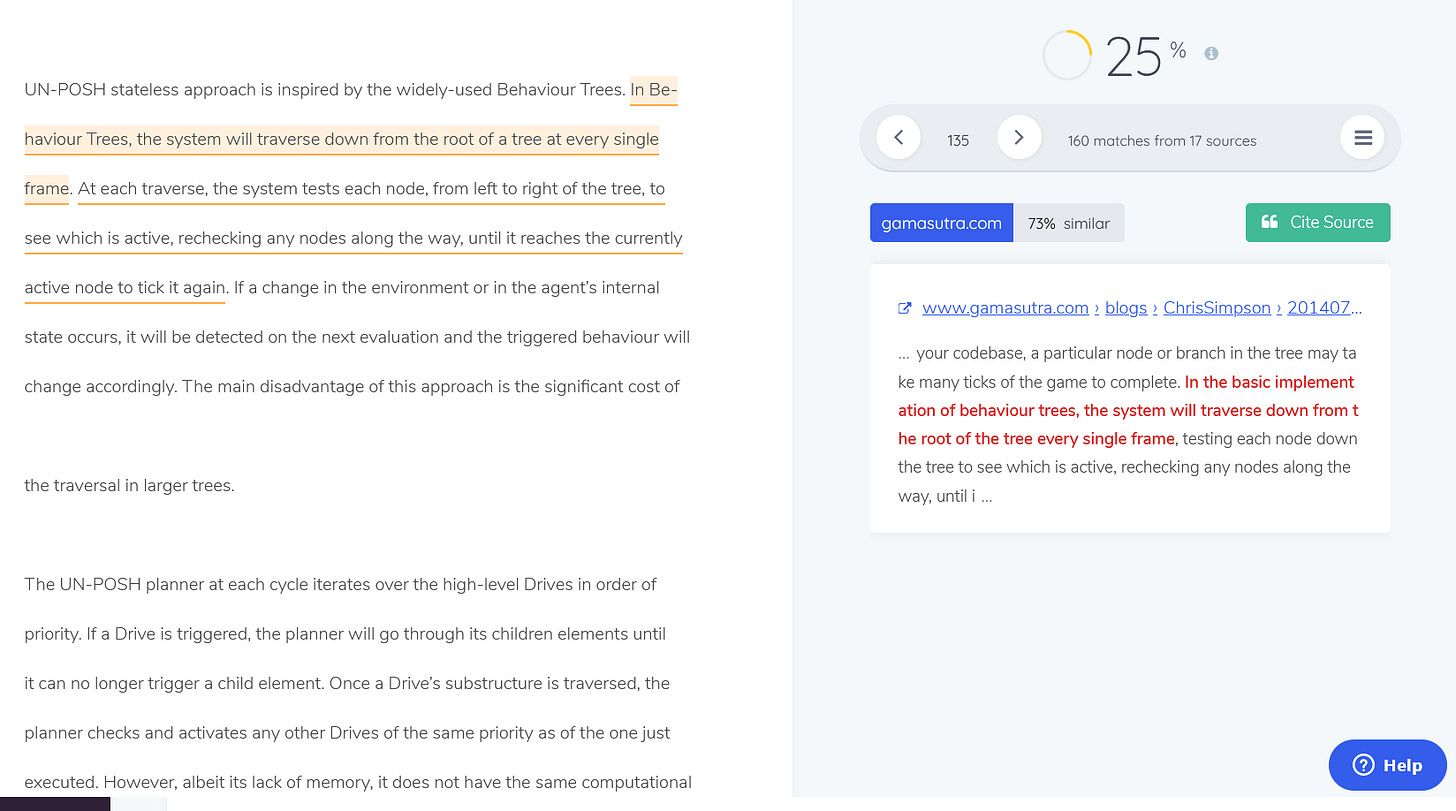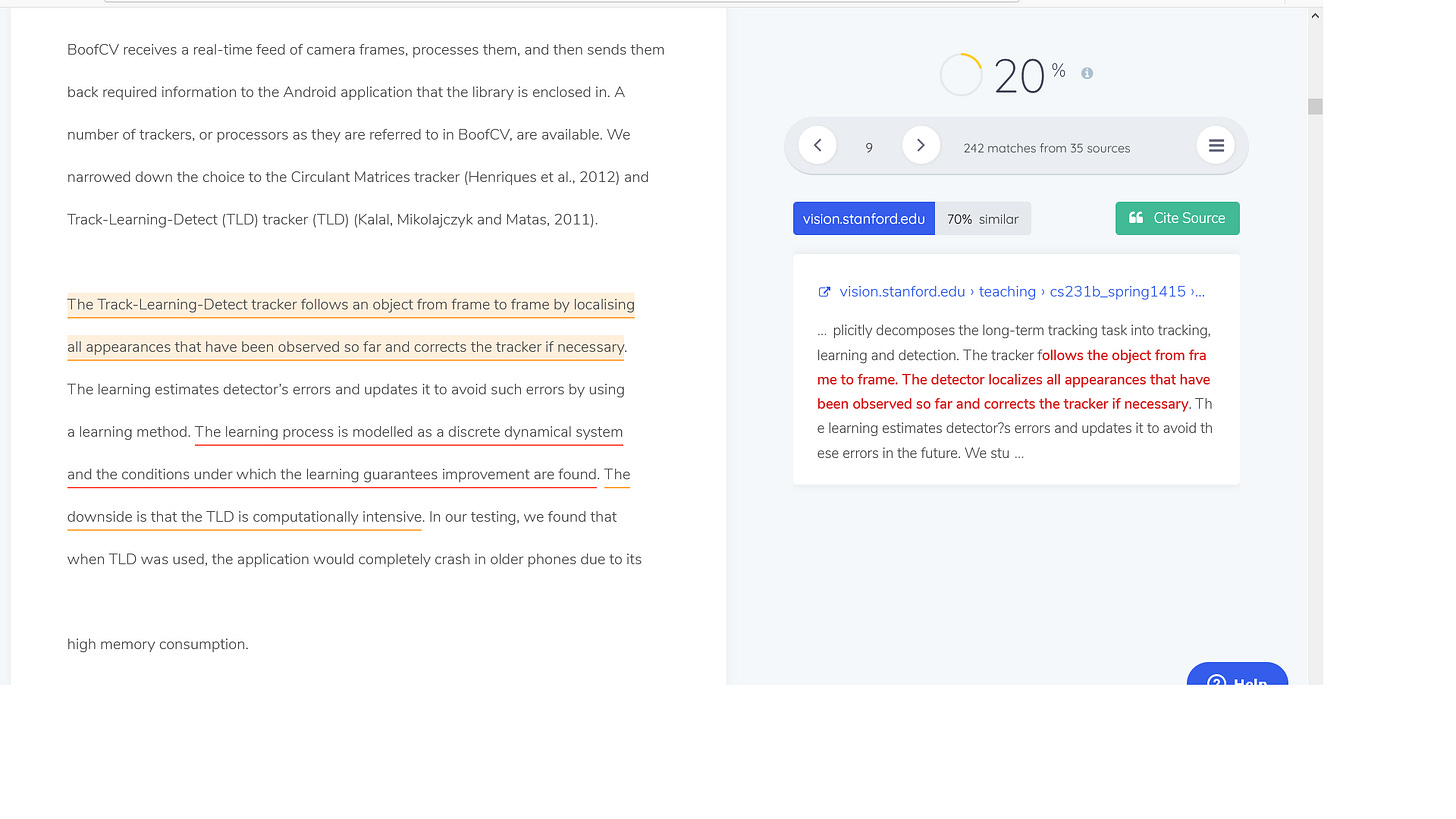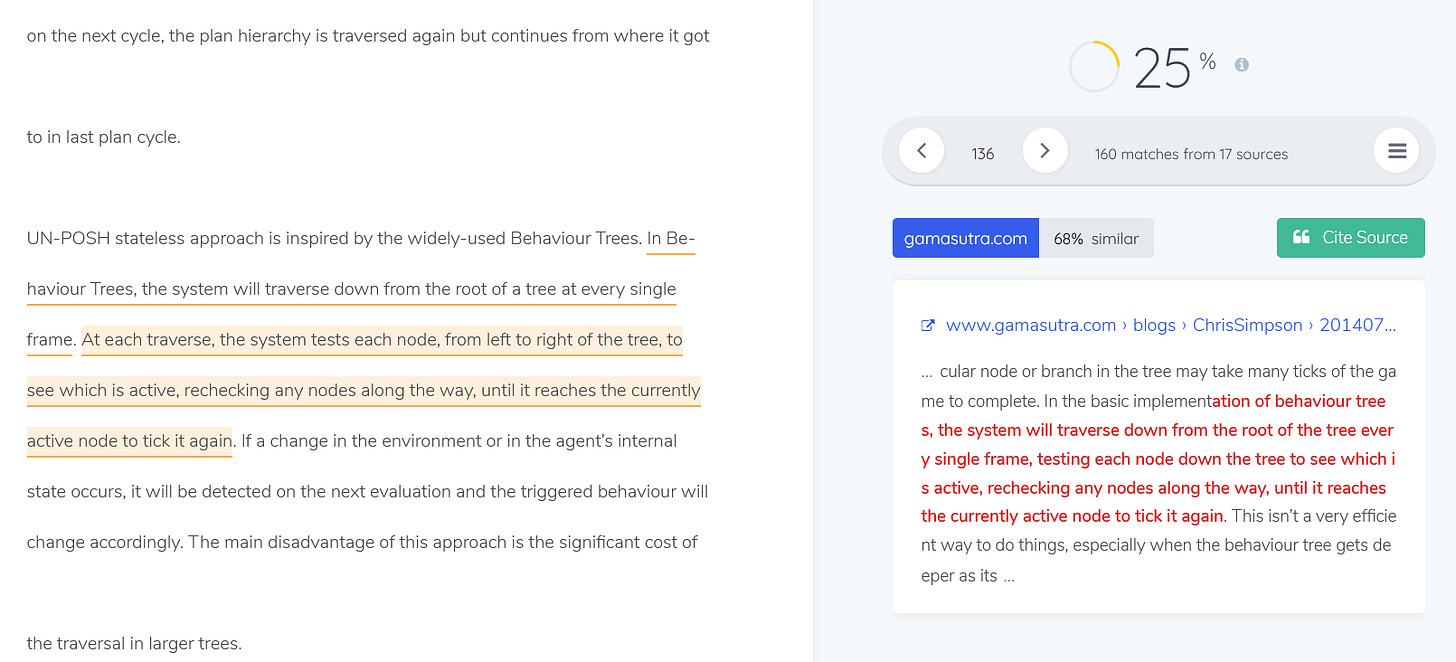The unethical ethicist?
There are two Reddit posts in r/AskAcademia about a potential case of academic plagiarism which we shall investigate further here.
As it turns out, the plagiarism described in the above links occurred and the culprit is Andreas Theodorou. Ironically, he is an expert in AI ethics. Andreas Theodorou was awarded a PhD by the University of Bath in 2019. He is now working as a postdoc at the University of Umea and has even received funding.
His thesis contains several plagiarized sentences, some of which are not detectable by common plagiarism detectors. It appears that Andreas has taken steps to avoid being discovered. He has methodically inspected each of his plagiarized sentences with a content similarity detector and made minor changes to them in order to avoid being caught. Many of these phrases can still be found via a manual google search.
Copy-pasting the text in his Phd thesis(https://researchportal.bath.ac.uk/files/195601231/andreasTheodorouThesis.pdf) is essentially impossible perhaps rendered so intentionally in order to minimize the chances of it being searched/checked for similarities with other works .
A plain text version of it, that we have created with an online OCR app(https://www.onlineocr.net/) can be found here.
We have determined that the documents where the copied text originates were published much earlier than his thesis.
Some of the parts of his Phd thesis that are plagiarized can be seen below:



Below are some phrases in his thesis that are undetectable by plagiarism detectors but are still detectable by google search:
The line at 2.3.2. Moral Patiency
“On this definition, all moral agents are also moral patients, but not all moral patients are moral agents
that seems to originate from here:https://quizlet.com/348405454/ethics-exam-3-flash-cards/ as
“ All moral agents are moral patients, but not all moral patients are moral agents.”
“He then reflects upon how culture determines the moral status of all entities”
that also originates from a flashcard: https://quizlet.com/10587400/ethics-flash-cards/
as
“ the moral code of a culture determines the moral status of things within that culture”
The line in the shared mental models found at page 43 in his thesis:
“understanding the intentions of others is a fundamental building block of social behaviour”
originating from here: https://www.ncbi.nlm.nih.gov/pmc/articles/PMC1044835/ as
“Understanding the intentions of others while watching their actions is a fundamental building block of social behavior”
“Calibration of trust refers to the correspondence between a person’s trust in the system and the system’s capabilities “
that was plagiarized by Andreas and which seems to originate from here .
Since we have only checked a rather small part of his thesis and found plagiarized sections on average once every fifth sentence, it is very likely that the rest of his work contains a significant number of plagiarized sentences that are slightly paraphrased in order to not be easily detectable. Based on our short sample, we estimate it to be around 20% of the thesis. We were informed by one of his associates that Andreas is certainly no stranger to plagiarism and were told that in the past he has done similarly dishonest things for his BSc projects. Parts of his thesis have been published, or have been presented at conferences, without proper citation






